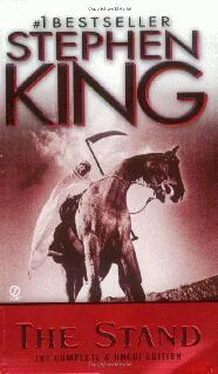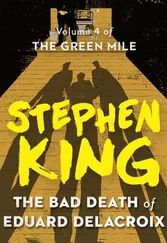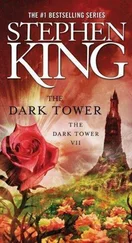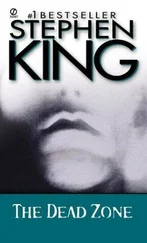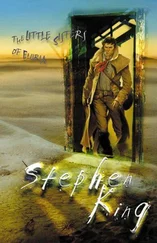It had really started eighteen months ago. He had been playing with the Tattered Remnants in a Berkeley club, and a man from Columbia had called. Not a biggie, just another toiler in the vinyl vineyards. Neil Diamond was thinking of recording one of his songs, a tune called “Baby, Can You Dig Your Man?”
Diamond was doing an album, all his own stuff except for an old Buddy Holly tune, “Peggy Sue Got Married”, and maybe this Larry Underwood tune. The question was, would Larry like to come up and cut a demo of the tune, then sit in an the session? Diamond wanted a second acoustic guitar—and he liked the tune a lot.
Larry said yes.
The session lasted three days. It was a good one. Larry met Neil Diamond, also Robbie Robertson, also Richard Perry. He got mention on the album’s inner sleeve and got paid union scale. But “Baby, Can You Dig Your Man?” never made the album. On the second evening of the session, Diamond had come up with a new tune of his own and that made the album instead.
Well, the man from Columbia said, that’s too bad. It happens. Tell you what—why don’t you cut the demo anyway. I’ll see if there’s anything I can do. So Larry cut the demo and then found himself back out on the street. In L.A. times were hard. There were a few sessions, but not many.
He finally got a job playing guitar in a supper club, crooning things like “Softly as I Leave You” and “Moon River” while elderly cats talked business and sucked up Italian food. He wrote the lyrics on scraps of notepaper, because otherwise he tended to mix them up or forget them altogether, chording the tune while he went “hmmmm-hmmmm, ta-da-hmmmm,” trying to look suave like Tony Bennett vamping and feeling like an asshole. In elevators and supermarkets he had become morbidly aware of the low Muzak that played constantly.
Then, nine weeks ago and out of the blue, the man from Columbia had called. They wanted to release his demo as a single. Could he come in and back it? Sure, Larry said. He could do that. So he had gone into Columbia’s L.A. studios on a Sunday afternoon, double-tracked his own voice on “Baby, Can You Dig Your Man?” in about an hour, and then backed it with a song he had written for the Tattered Remnants, “Pocket Savior.” The man from Columbia presented him with a check for five hundred dollars and a stinker of a contract that bound Larry to more than it did the record company. He shook Larry’s hand, told him it was good to have him aboard, offered him a small, pitying smile when Larry asked him how the single would be promoted, and then took his leave. It was too late to deposit the check, so Larry ran through his repertoire at Gino’s with it in his pocket. Near the end of his first set, he sang a subdued version of “Baby, Can You Dig Your Man?” The only person who noticed was Gino’s proprietor, who told him to save the nigger bebop for the cleanup crew.
Seven weeks ago, the man from Columbia called again and told him to go get a copy of Billboard . Larry ran. “Baby, Can You Dig Your Man?” was one of three hot prospects for that week. Larry called the man from Columbia back, and he had asked Larry how he would like to lunch with some of the real biggies. To discuss the album. They were all pleased with the single, which was getting airplay in Detroit, Philadelphia, and Portland, Maine, already. It looked as if it was going to catch. It had won a late-night Battle of the Sounds contest for four nights running on one Detroit soul station. No one seemed to know that Larry Underwood was white.
He had gotten drunk at the luncheon and hardly noticed how his salmon tasted. No one seemed to mind that he had gotten loaded. One of the biggies said he wouldn’t be surprised to see “Baby, Can You Dig Your Man?” carry off a Grammy next year. It all rang gloriously in Larry’s ears. He felt like a man in a dream, and going back to his apartment he felt strangely sure that he would be hit by a truck and that would end it all. The Columbia biggies had presented him with another check, this one for $2,500. When he got home, Larry picked up the telephone and began to make calls. The first one was to Mort “Gino” Green. Larry told him he’d have to find someone else to play “Yellow Bird” while the customers ate his lousy undercooked pasta. Then he called everyone he could think of, including Barry Grieg the Remnants. Then he went out and got standing-up falling-down drunk.
Five weeks ago the single had cracked Billboard ’s Hot One Hundred. Number eighty-nine. With a bullet. That was the week spring had really come to Los Angeles, and on a bright and sparkling May afternoon, with the buildings so white and the ocean so blue that they could knock your eyes out and send them rolling down your cheeks like marbles, he had heard his record on the radio for the first time. Three or four friends were there, including his current girl, and they were moderately done up on cocaine. Larry was coming out of the kitchenette and into the living room with a bag of Toll House cookies when the familiar KLMT slogan— Nyoooooo… meee-USIC! —came on. And then Larry had been transfixed by the sound of his own voice coming out of the Technics speakers:
I know I didn’t say I was comin down,
I know you didn’t know I was here in town,
But bay-yay-yaby you can tell me if anyone can,
Baby, can you dig your man?
He’s a righteous man,
Tell me baby, can you dig your man?
“Jesus, that’s me,” he had said. He dropped the cookies onto the floor and then stood gape-mouthed and stone-flabbergasted as his friends applauded.
Four weeks ago his tune had jumped to seventy-three on the Billboard chart. He began to feel as if he had been pushed rudely into an old-time silent movie where everything was moving too fast. The phone rang off the hook. Columbia was screaming for the album, wanting to capitalize on the single’s success. Some crazy rat’s ass of an A & R man called three times in one day, telling him he had to get in to Record One, not now but yesterday , and record a remake of the McCoys’ “Hang On, Snoopy” as the follow-up. Monster! this moron kept shouting. Only follow-up that’s possible, Lar! (He had never met this guy and already he wasn’t even Larry but Lar.) It’ll be a monster! I mean a fucking monster !
Larry at last lost his patience and told the monster-shouter that, given a choice between recording “Hang On, Sloopy” and being tied down and receiving a Coca-Cola enema, he would pick the enema. Then he hung up.
The train kept rolling just the same. Assurances that this could be the biggest record in five years poured into his dazed ears. Agents called by the dozen. They all sounded hungry. He began to take uppers, and it seemed to him that he heard his song everywhere. One Saturday morning he heard it on “Soul Train” and spent the rest of the day trying to make himself believe that, yes, that had actually happened.
It became suddenly hard to separate himself from Julie, the girl he had been dating since his gig at Gino’s. She introduced him to all sorts of people, few of them people he really wanted to see. Her voice began to remind him of the prospective agents he heard over the telephone. In a long, loud, acrimonious argument, he split with her. She had screamed at him that his head would soon be too big to fit through a recording studio door, that he owed her five hundred dollars for dope, that he was the 1990s’ answer to Zagar and Evans. She had threatened to kill herself. Afterward Larry felt as if he had been through a long pillow-fight in which all the pillows had been treated with a low-grade poison gas.
They had begun cutting the album three weeks ago, and Larry had withstood most of the “for your own good” suggestions. He used what leeway the contract gave him. He got three of the Tattered Remnants—Barry Grieg, Al Spellman, and Johnny McCall—and two other musicians he had worked with in the past, Neil Goodman and Wayne Stukey. They cut the album in nine days, absolutely all the studio time they could get. Columbia seemed to want an album based on what they thought would be a twenty-week career, beginning with “Baby, Can You Dig Your Man?” and ending with “Hang On, Sloopy.” Larry wanted more.
Читать дальше
